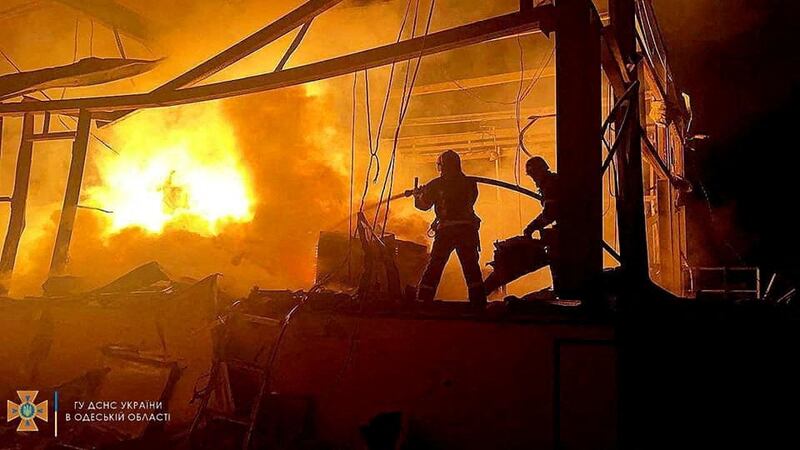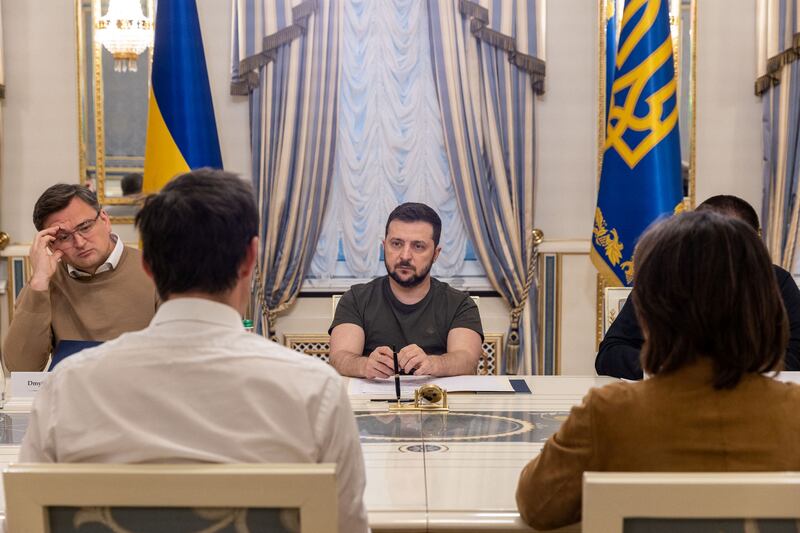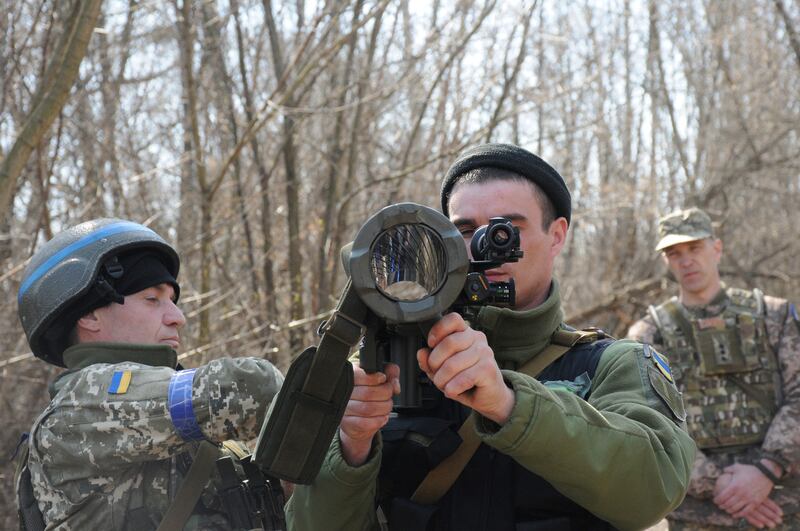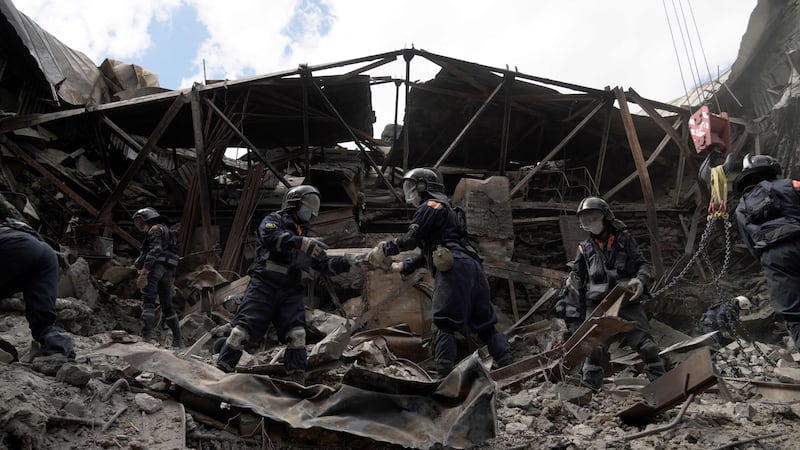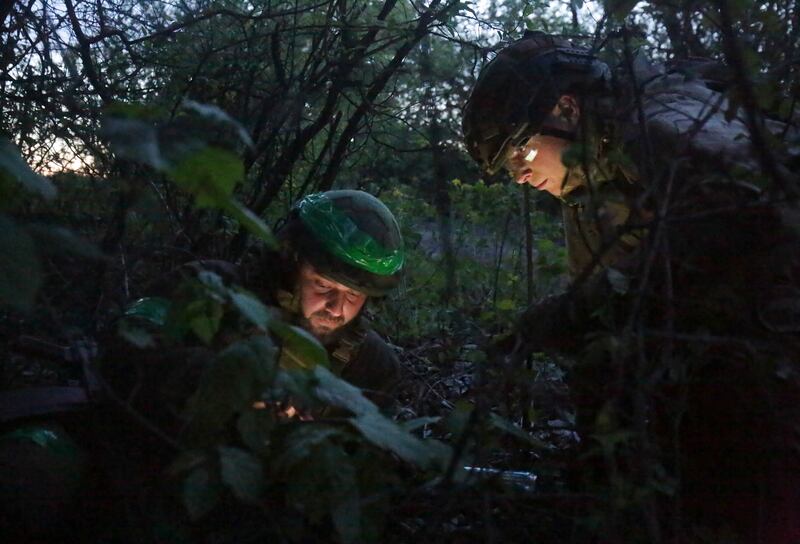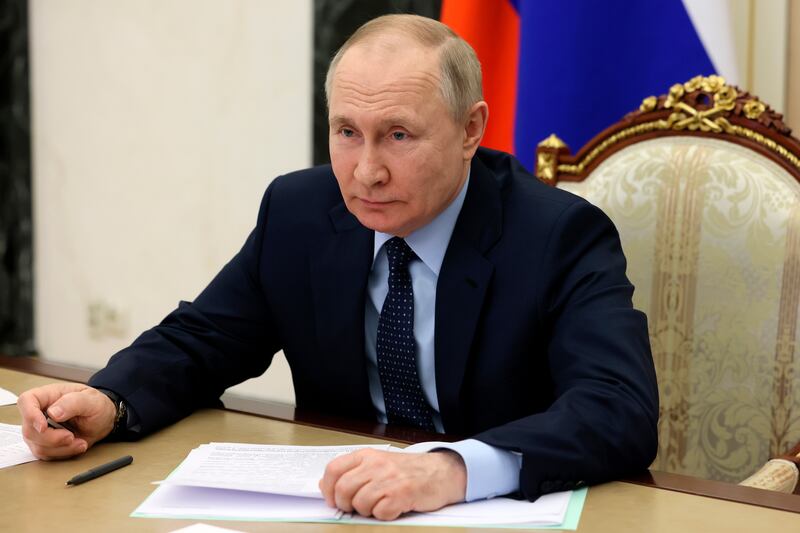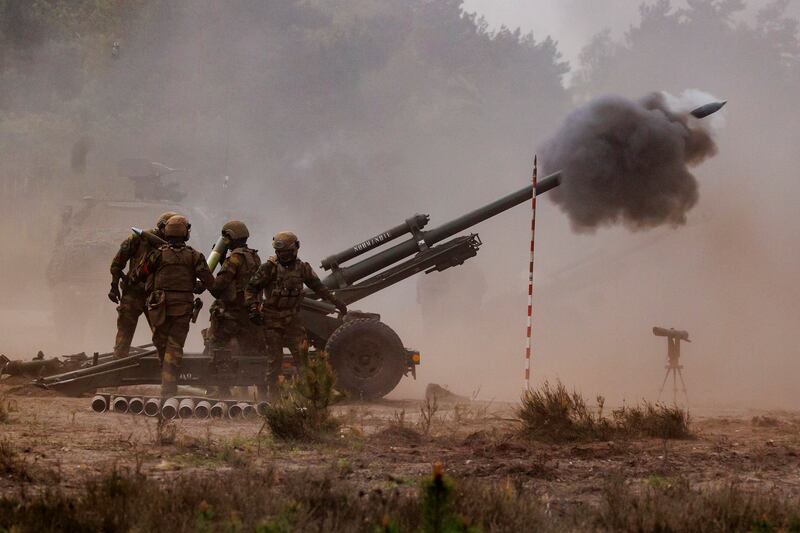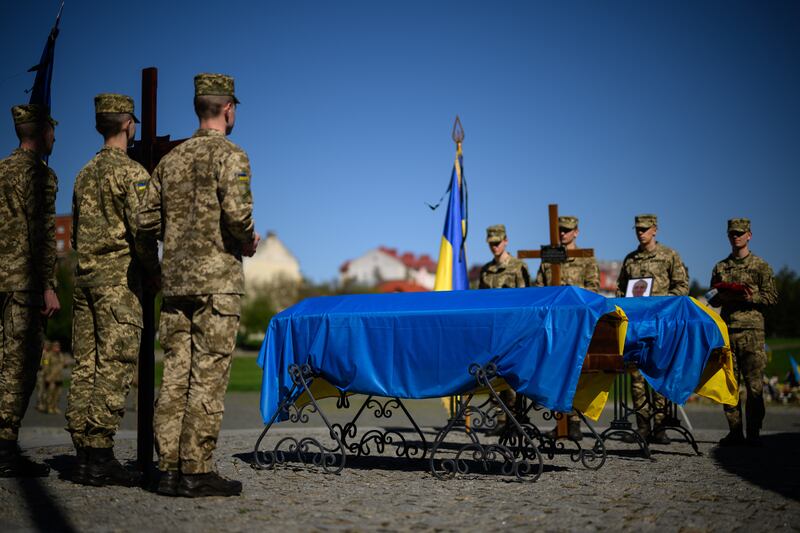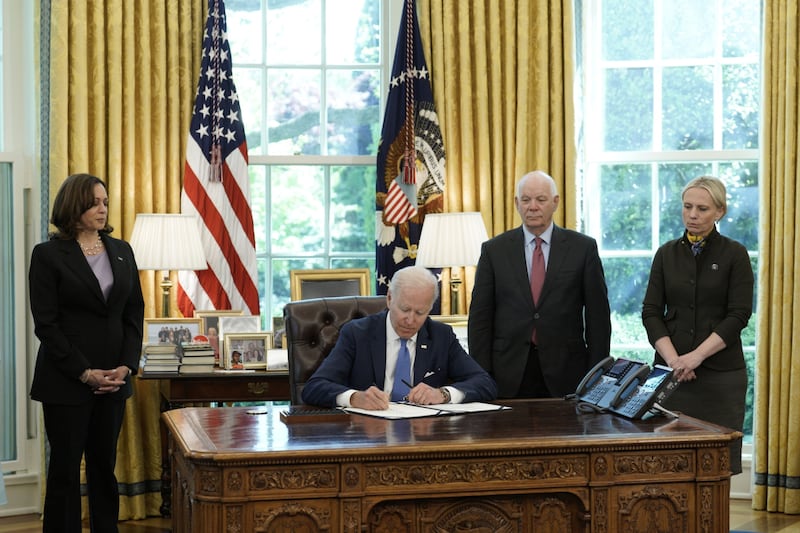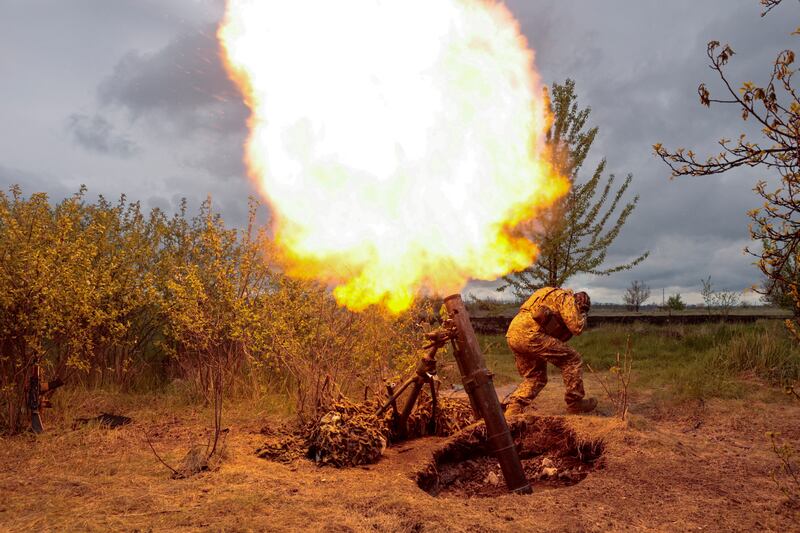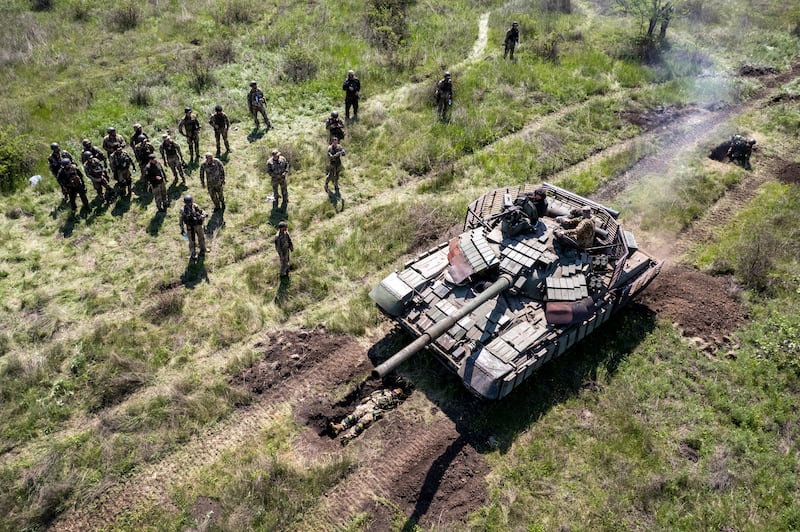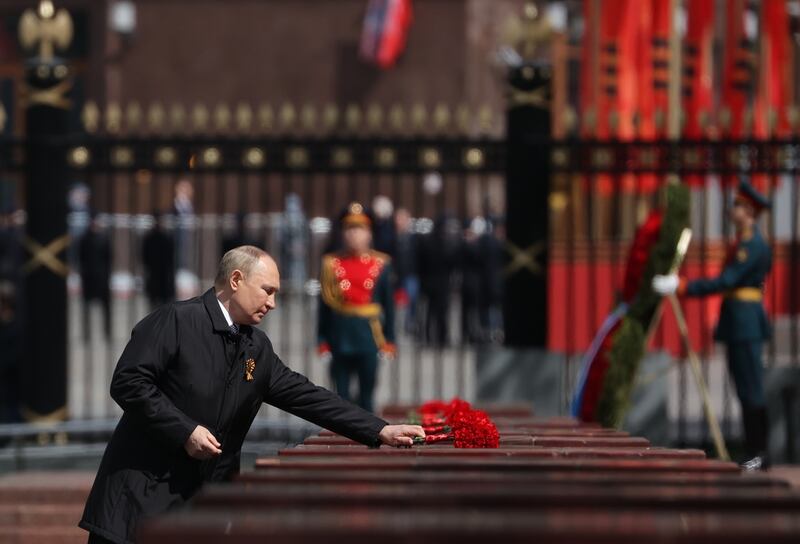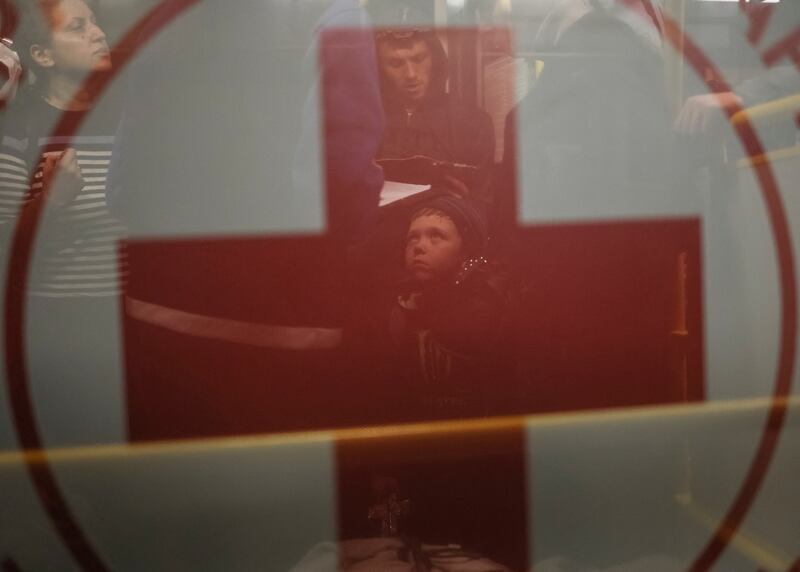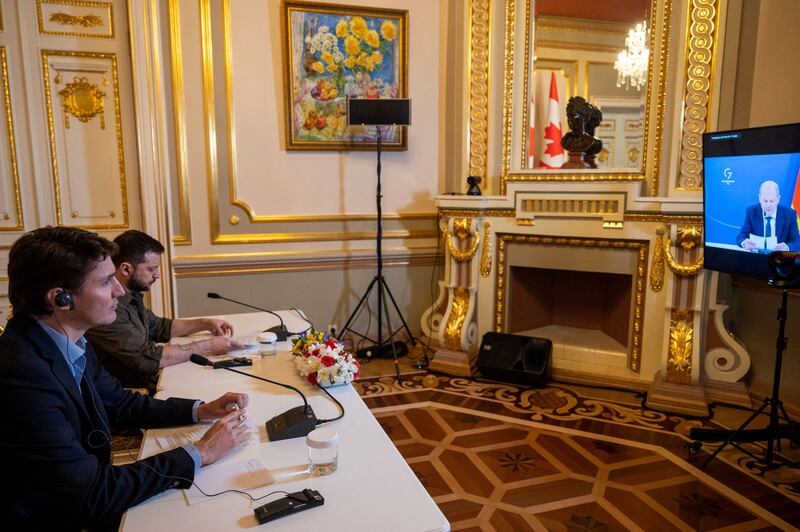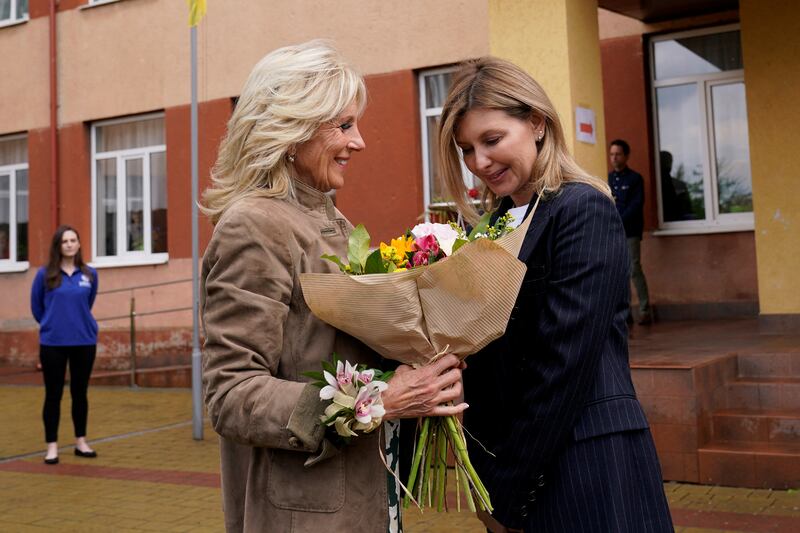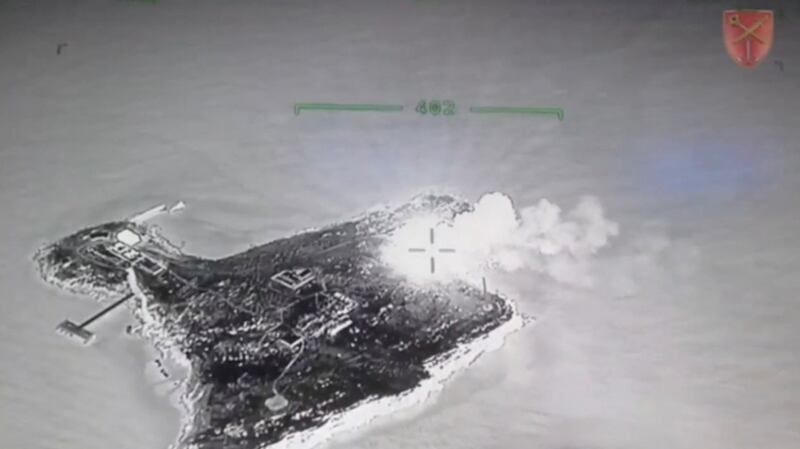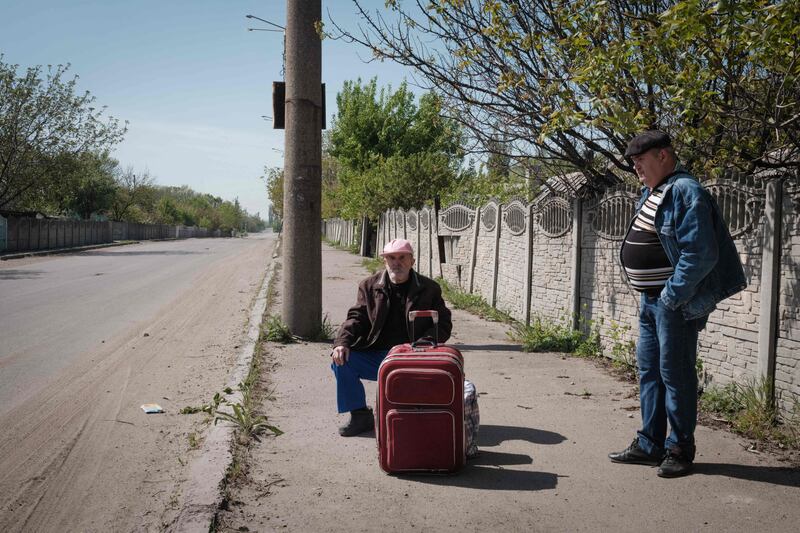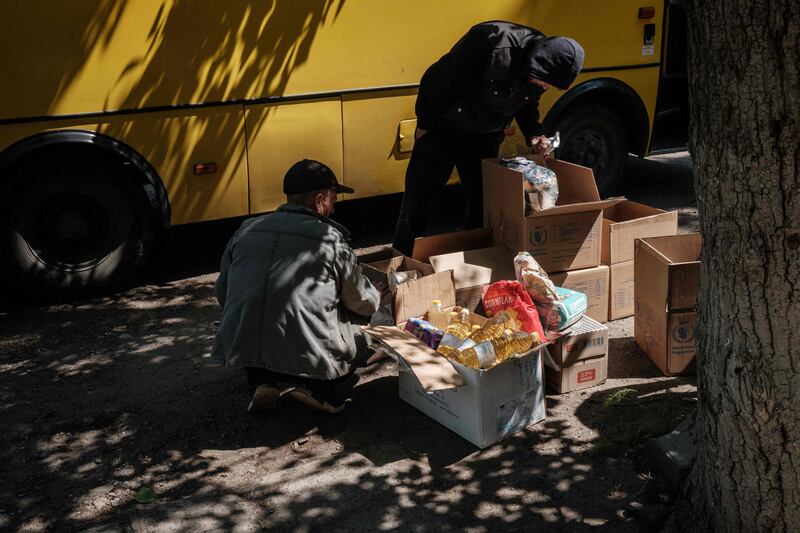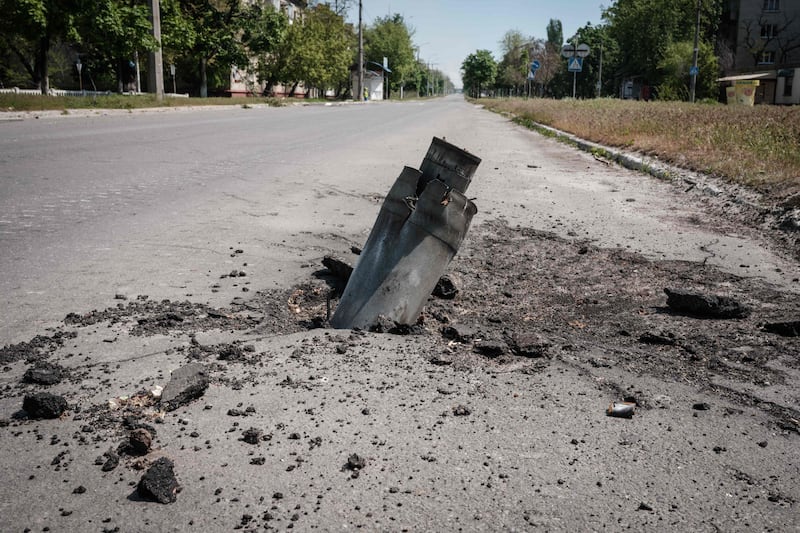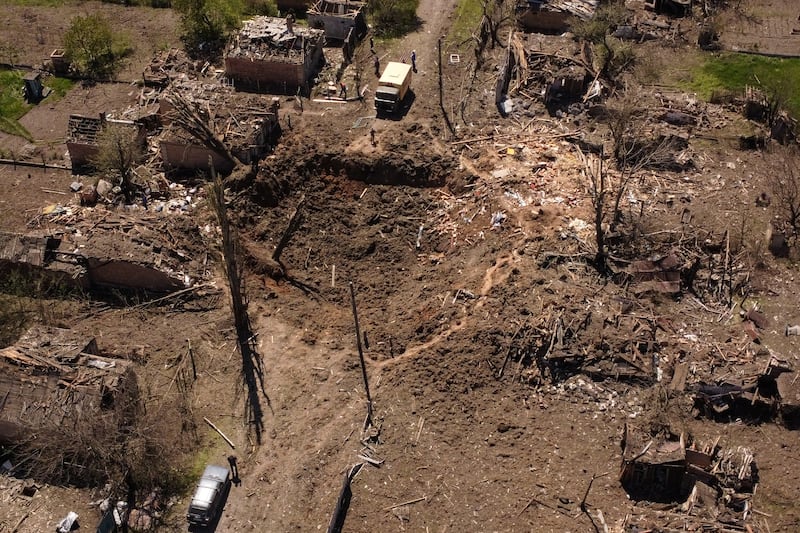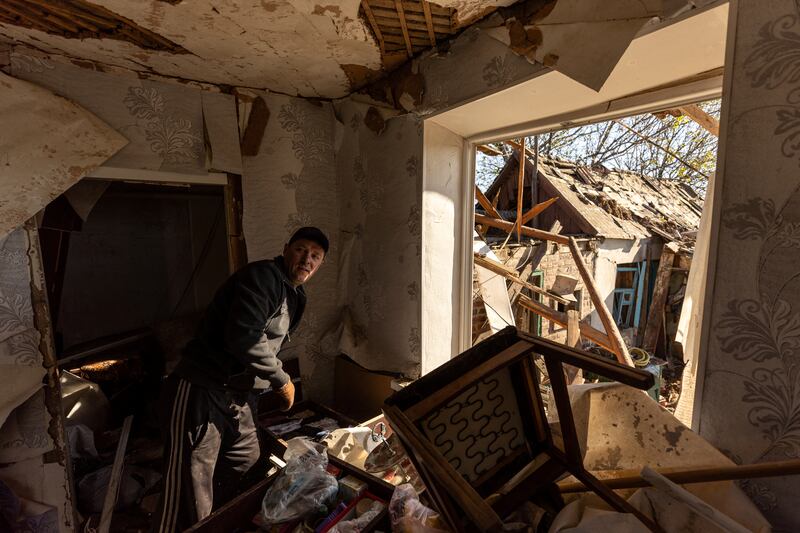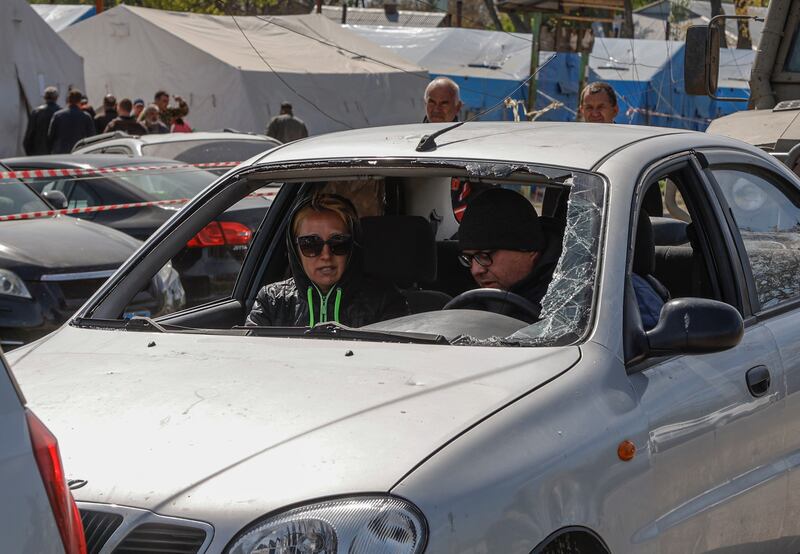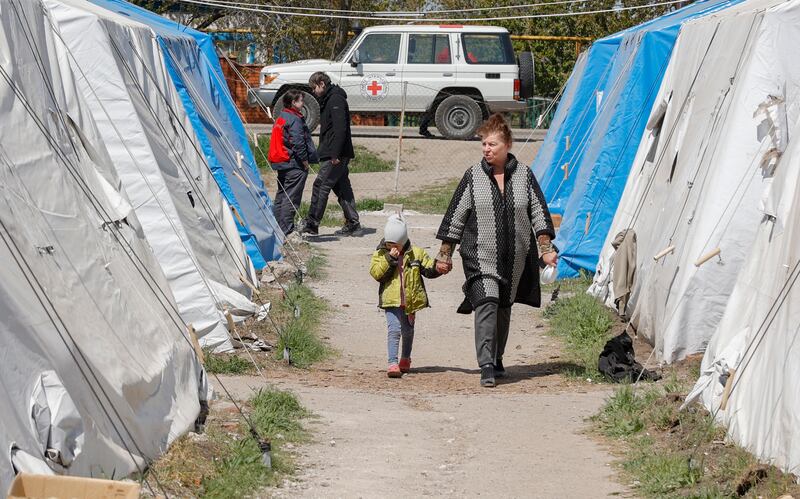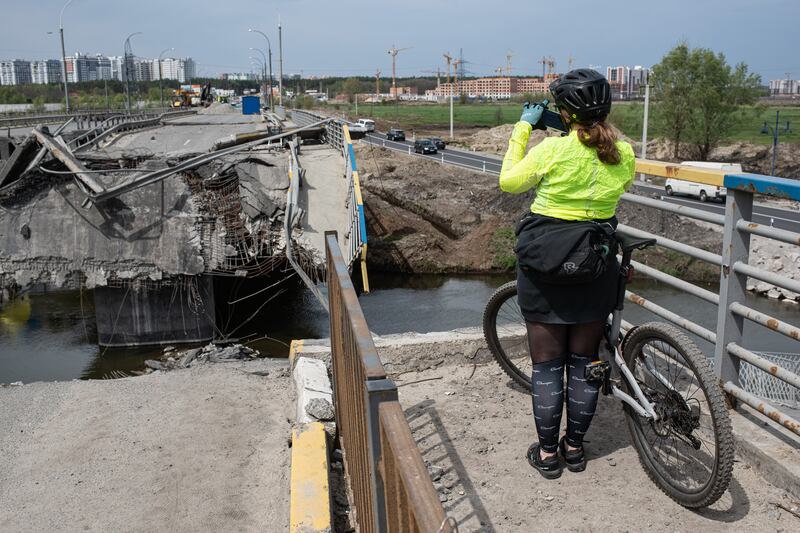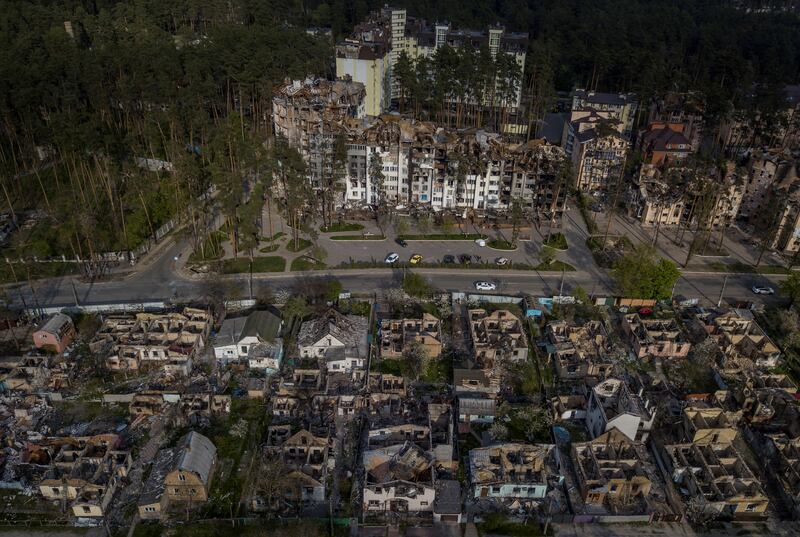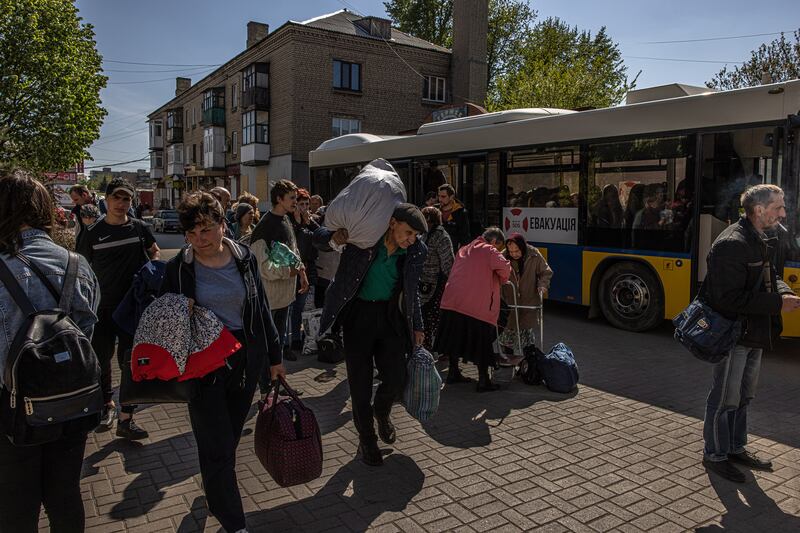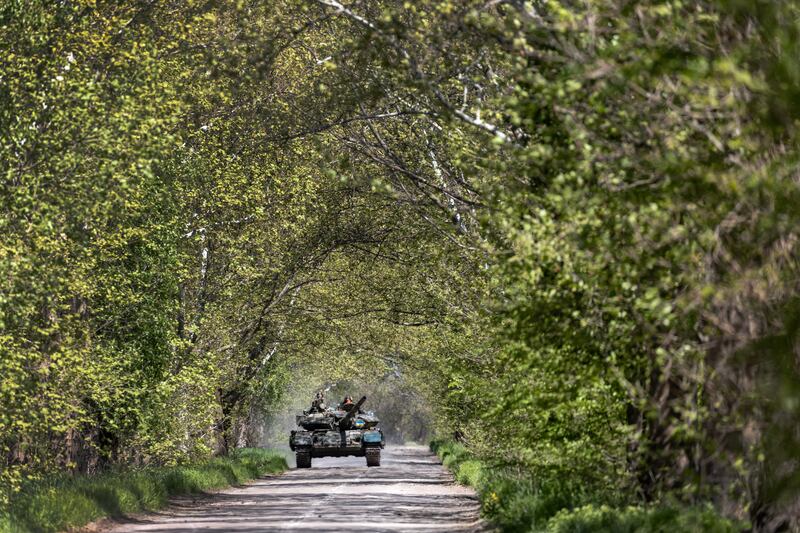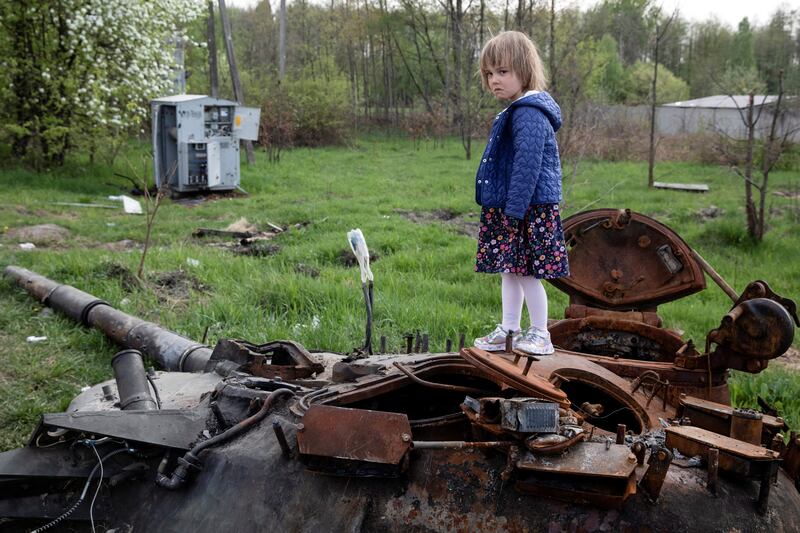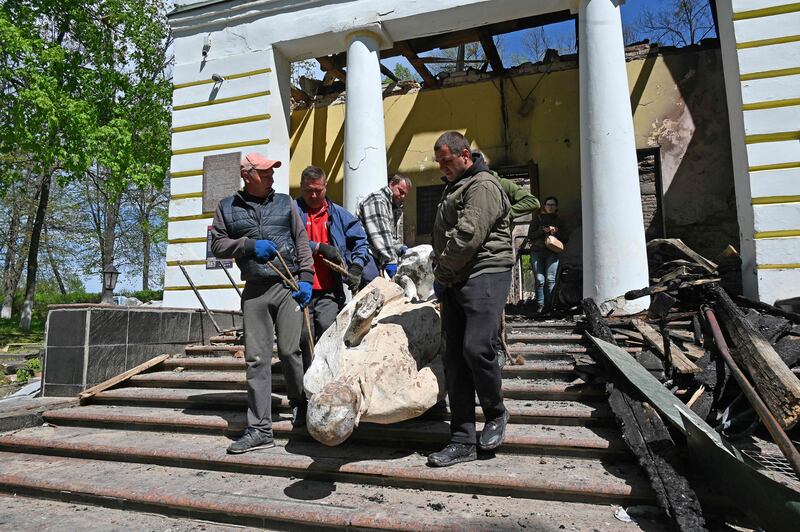Live updates: follow the latest news on Russia-Ukraine
Russian missiles have pounded the Black Sea port of Odesa in strikes that killed one person and injured five, Ukraine reported overnight.
Ukraine’s armed forces said a civilian shopping centre was hit and buildings set ablaze by seven missiles fired at the city, disrupting a visit to Odesa by European Council President Charles Michel.
Mr Michel and Ukrainian Prime Minister Denis Shmyhal took cover in a bomb shelter as air raid sirens sounded in the southern port, where officials say the war has brought Ukraine’s food exports to a standstill.
“For the first time in decades there is no usual movement of the merchant fleet, no usual port functioning in Odesa. Probably this has never happened in Odesa since the Second World War,” said President Volodymyr Zelenskyy.
There were conflicting descriptions of the arms fired at Odesa. Local armed forces said the missiles were ageing Soviet-era models, while a Ukrainian think tank tracking the war identified them as modern hypersonic missiles.
Ukraine said the attacks were meant to put psychological pressure on civilians, while a Pentagon official said the US did not foresee any ground attack on Odesa.
The official said Russia was hemmed in by its lack of territorial gains and that its Black Sea fleet was keeping its distance from the coast, but that striking Odesa could divert Ukraine’s focus from the battle further east in the Donbas.
“We think part of the reason they're striking there is … maybe pinning down Ukrainian forces in or around that area so that they are not available or they won't feel like they should be made available to move to the Donbas,” they said.
Russia, which claims to be aiming at military targets, said it had taken out six Ukrainian helicopters near a military airfield to the west of Odesa.
The strikes came on the day that both countries commemorated the Soviet Union’s victory over Nazi Germany 77 years ago. The anniversary had prompted speculation that Russia would announce a shift in strategy.
But the day passed with no major announcements from the Russian side, with President Vladimir Putin instead invoking the Soviet wartime spirit by claiming his forces were fighting to defeat neo-Nazis in Ukraine.
Western powers reject this narrative as a spurious excuse for an invasion which they say has failed to meet the Kremlin’s objectives after almost 11 weeks of fighting.
Britain’s Defence Ministry said in a regular intelligence update on Tuesday that Russia had underestimated Ukraine’s resistance and planned for a swift invasion which would encounter limited opposition.
As a result, Russia took a relatively light approach to its early battles in a miscalculation which “led to unsustainable losses and a subsequent reduction in Russia’s operational focus,” the ministry said.
Ukraine said Russia was pushing for full control of the eastern Donetsk and Luhansk regions, going beyond the territory held by pro-Kremlin separatists before the invasion. It said artillery fire was being used along the line of contact in the east.
Air raid sirens could be heard across several regions of Ukraine early on Tuesday including Luhansk, Kharkiv and Dnipro, Reuters reported. Serhiy Gaidai, governor of Luhansk, said the region had been attacked 22 times in the past 24 hours.
